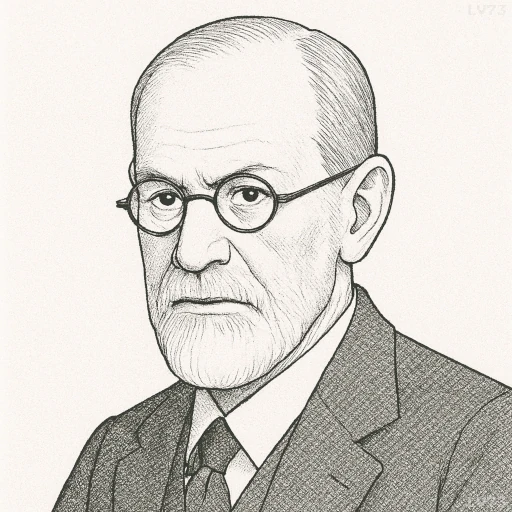“Neurosis is the inability to tolerate ambiguity.”

- May 6, 1856 – September 23, 1939
- Austrian
- Neurologist, Founder of Psychoanalysis
table of contents
Quote
“Neurosis is the inability to tolerate ambiguity.”
Explanation
In this concise definition, Freud captures the essence of neurotic suffering as a psychological rigidity—an overwhelming need for certainty, control, and resolution in a world that is inherently complex and uncertain. The neurotic individual struggles to hold conflicting thoughts, desires, or feelings, and often reacts with anxiety or defense mechanisms when faced with moral, emotional, or situational ambiguity. This inability to tolerate the gray areas of life leads to inner conflict, compulsive behavior, or repression.
Freud’s broader psychoanalytic framework saw neurosis as arising from unresolved tensions between unconscious desires and societal or moral prohibitions. These tensions often produce ambiguous emotional states—such as simultaneous love and hate, or guilt and desire—that the ego finds intolerable. Rather than integrating or accepting this ambiguity, the neurotic mind attempts to simplify or deny it, often at the cost of mental flexibility and well-being.
In contemporary psychology, Freud’s insight remains influential. People suffering from anxiety disorders, perfectionism, or obsessive-compulsive tendencies frequently exhibit difficulty managing uncertainty or ambivalence. Freud’s quote highlights the therapeutic goal of helping individuals develop greater tolerance for ambiguity, allowing them to embrace life’s complexity without being overwhelmed by it. It remains a powerful reminder that mental health is not the absence of conflict, but the capacity to live with it constructively.
Would you like to share your impressions or related stories about this quote in the comments section?


